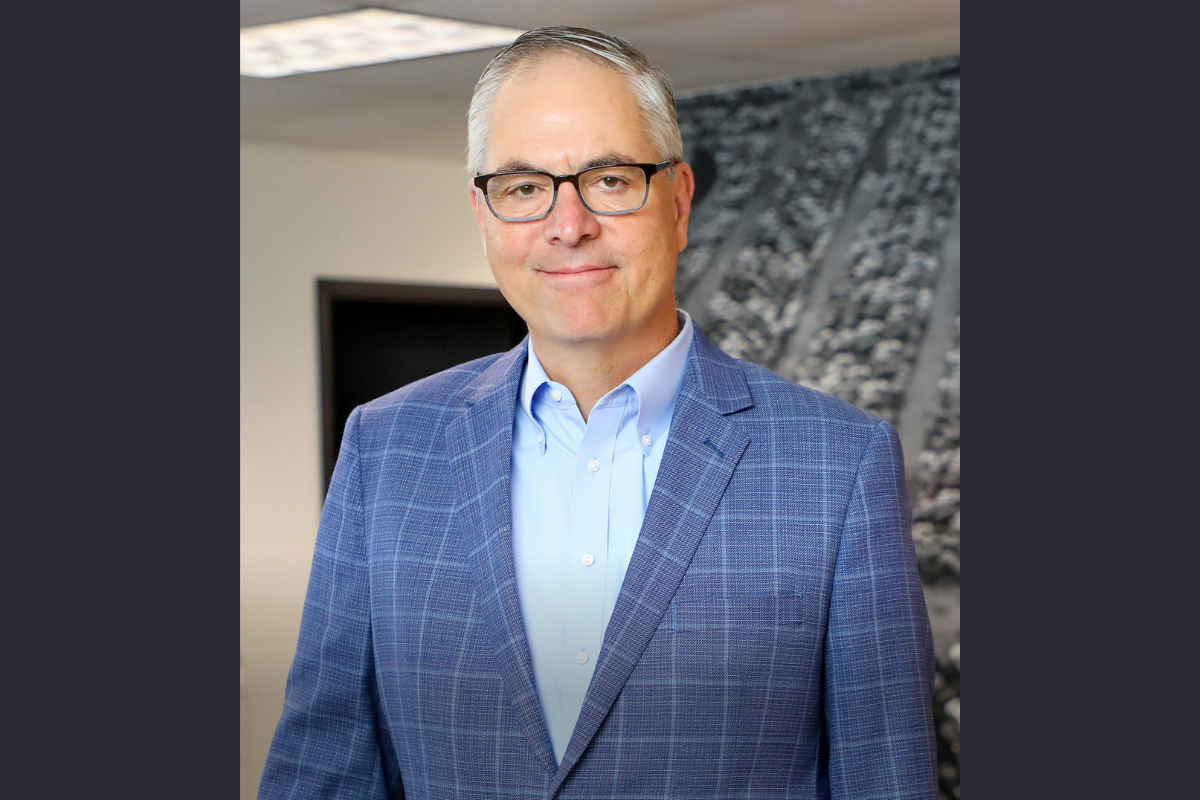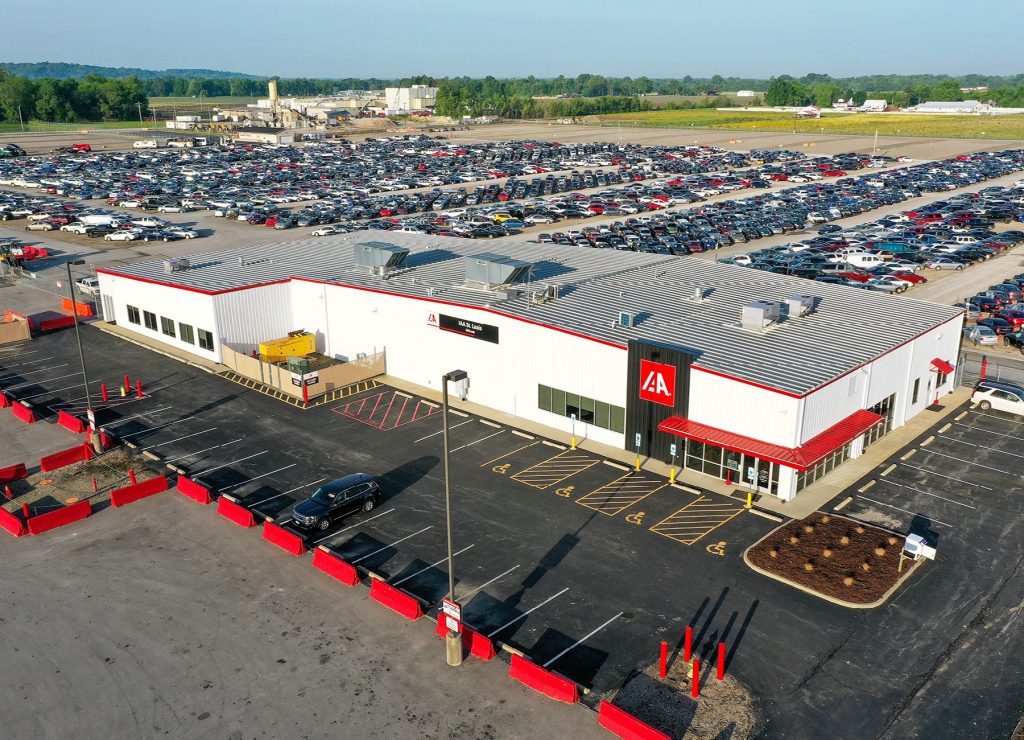Salvaging the Environment: John Kett
Auto salvage is not often viewed as ecologically important, but IAA CEO and President John Kett says the industry is misunderstood as it keeps vehicles on the road for longer and out of landfills.
John Kett, CEO and President of IAA, braces every year for catastrophe (CAT) season, when disasters such as floods and hurricanes strike and leave thousands of written-off vehicles for his company to retrieve.

IAA swoops in during CAT season, dispatching teams of tow trucks to haul away write-offs, which are sold mostly through auction, then restored to working condition or salvaged for parts.
"Our ability to respond and respond quickly is a key attribute of our service offering and our relationships with our big insurance companies," he tells The CEO Magazine.
While not exactly first responders, Kett says, "We’re a key responder when there is a situation like that. Our ability to get in and work with the community and local law enforcement to get into some of these areas as quickly as we can is key."

Our ability to get in and work with the community and local law enforcement to get into some of these areas as quickly as we can is key.
Clearing cars after catastrophes is just one part of Westchester, Illinois-based IAA’s business. It facilitates a global marketplace for the buying and selling of damaged and low-value vehicles. IAA provides a multi-channel auction model, which allows buyers to bid via its online platform on vehicles located at more than 200 sites in the United States, Canada and the United Kingdom. Customers can even opt for a buy-now option with some vehicles.
In November, Ritchie Bros. announced that it has entered into an agreement to acquire IAA in a move the companies say will create a leading global marketplace for commercial assets and vehicles. Kett will join the Ritchie Bros. Board of Directors following the deal closing later in 2023.
Decades of expertise
Digitization and technology have transformed IAA’s business and the buying experience, but there’s also a well-developed operation and decades of expertise in bringing salvaged vehicles to market.
"We’ve honed our craft over many years so it’s actually an interesting and sometimes misunderstood part of our business," Kett says. "When we tell people that we’re a digital marketplace, they think it’s purely a technology, kind of an eBay-like platform. But there’s a whole physical business behind it that’s absolutely required to be successful in this area of the economy."
The redistribution and reselling of vehicles is a really efficient and environmentally friendly business.
Despite the impressive growth of IAA, Kett says much of its business remains misunderstood, especially its role in maximizing the lifespans of vehicles. It’s something he describes as the "north star" guiding the company. Maximizing vehicle lifespans allows for fewer vehicles to end up in landfills and for people with lower incomes or in developing countries to access affordable transportation.
"We talk about existing to maximize and sustain the value of a vehicle over its lifetime to benefit people around the world in our shared environment. The redistribution and reselling of vehicles is a really efficient and environmentally friendly business," Kett explains.
"We are really part of that circular economy for autos. A high 90 percent of a vehicle gets recycled. If that vehicle’s damaged, it’s going to be potentially put back on the road if it gets fixed up. Or the parts are going to be harvested, then used in other repairs to fix vehicles to not require a new part to be manufactured."
Social aspect
Kett also sees a social aspect in IAA’s business. Internationally, the company operates with physical assets in three countries, but maintains cooperative relationships with buyers in 130 countries around the world and has developed market alliances in another 20 countries.
"We have a large international footprint of buyers who are purchasing vehicles to provide affordable transportation in markets where they don’t have or can’t afford new cars," Kett says.
We’ve given buyers confidence that if they’re purchasing something from us, they know what they’re getting, and they can find out what to do with that vehicle or those parts.
"As we’ve gotten better at what we do, a smaller percentage of each vehicle is actually scrapped. That’s because we’ve found this buyer network and we’ve been able to really work to distribute those and find markets. We’ve given buyers confidence that if they’re purchasing something from us, they know what they’re getting, and they can find out what to do with that vehicle or those parts."
Founded in Los Angeles in 1982, IAA revolutionized the auto salvage industry. Salvaged vehicles at the time were towed to often messy and unkempt junkyards, which were seen as sprawling and unsavory eyesores on the urban landscape.
IAA, then known as Los Angeles Auto Salvage, purchased salvage vehicles from insurance companies outright, then sold them at auctions. It set up inspection centers, embraced video technology to allow inspections from remote locations and established standby teams for catastrophic events, according to an account from the International Directory of Company Histories. It also consolidated the industry.
Passion for salvageE
A graduate of Northern Illinois University and Northwestern University, Kett joined IAA in 2001. He describes himself as "a finance guy by training", who was gravitating toward the CFO position. But he developed a passion for the salvage vehicle business and was elevated to CEO in 2014.
"The more I got involved across the business, working with our customers and employees, it became a passion," Kett recalls. "When the time came, I could not have been more excited about stepping into the CEO role."
We’re in a diverse world and businesses perform better when they embrace that and make that part of who they are.
IAA sold more than 2.5 million vehicles through its platform in 2021 and generated US$1.83 billion in revenue. But satisfaction with IAA’s business goes beyond the bottom line.
Kett describes a commitment to diversity, equity and inclusion as "an important element of our business. It is a priority to make sure we continue to develop and grow the diversity of our business. We’re in a diverse world and businesses perform better when they embrace that and make that part of who they are."
Solving world problems
He is also fond of regularly stopping in at local branches while on business trips to chat with staff and take questions.
"It’s always reinvigorating to me to actually get to spend time with them," Kett says. "Why do I like this business? There is an element that we really do have a purpose that’s beyond profit in what we do. We’re solving problems for people all over the world."
The position has presented challenges for Kett. He shepherded the company through the process of becoming an independent, publicly traded company in 2019. The pandemic also dented business temporarily as people sheltered in place – leading to fewer accidents and fewer write-offs.
"We did have to take a deep breath and assess the situation," Kett recalls.
He and his team were determined to push ahead with future plans, along with accelerating a digital transformation already underway in the company.
Still, challenges persist. Costs have increased – "short-term tactical headwinds," according to Kett – especially the prices for "getting the vehicle from the body shop, someone’s driveway or an impound lot, wherever it is, into our facility".
A misunderstood industry
The auto salvage industry also remains somewhat misunderstood, which creates headaches in dealing with some municipal governments.
"Municipalities tend to group us in with junkyards because they see the word ‘salvage’, even though we don’t take off any parts. We’re just protecting the vehicle, selling it as it is, and making sure the paperwork is done to sell it properly," he says.
The zoning requirements in many municipalities provide a competitive advantage for IAA, however.
"It’s actually an interesting part of our business that effectively creates a moat around us from competition. We typically need to have these facilities zoned differently than just storing a car because it’s a damaged car," Kett explains.
Finding people who can do things better than we can and working together to solve a mutual or prospective customer’s problem – that is good business.
"It is sometimes difficult to get the property that we need, but once we have it, we now have a network across the United States, Canada and the United Kingdom that would be very difficult, expensive and time-consuming to replicate. And the laws that exist today across those countries aren’t going to be changing anytime soon, so our network of real estate is truly a strategic asset."
Another strategic asset is IAA’s partnerships with insurance companies, tow truck operators and, increasingly, international market alliances.
"We do have some partners where we compete with them in some areas of the business, but we collaborate in others," Kett says. "We can’t be best at everything; we’ll run out of resources or lose our focus. Finding people who can do things better than we can and working together to solve a mutual or prospective customer’s problem – that is good business."
Sponsored by: Capgemini
Capgemini helps its clients transform and manage their business by unlocking the value of technology.
Read More